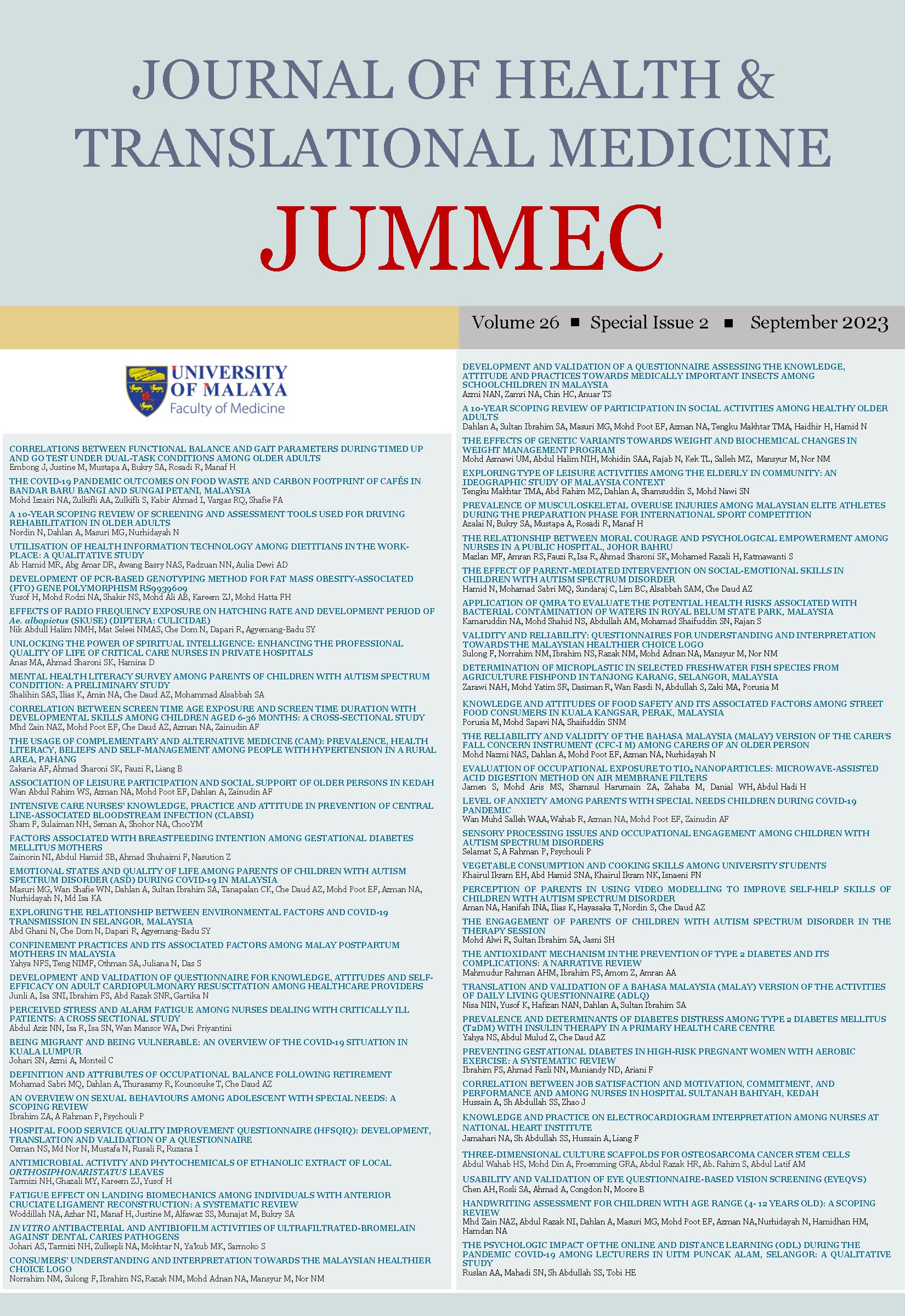UTILISATION OF HEALTH INFORMATION TECHNOLOGY AMONG DIETITIANS IN THE WORKPLACE: A QUALITATIVE STUDY
Received 2023-07-07; Accepted 2023-07-30; Published 2023-09-15
DOI:
https://doi.org/10.22452/jummec.sp2023no2.4Abstract
Dietitians play an important role in advocating lifestyle changes, such as dietary modifications and physical activity, to effectively prevent chronic diseases and avoid complications. The use of information technologies (IT) helps dietitians to engage with their patients. This paper explores the use health information technology among dietitians in the workplace. Four focus group sessions involving fifteen dietitians from hospitals and universities were conducted using an online platform. Participants were recruited using purposive and snowball sampling. A semi-structured questionnaire was used to facilitate the interview to understand better dietitians' health IT practices. Interviews were videotaped, verbatim transcribed, and emerging themes and subthemes were thematically analysed. Inductive and deductive content analysis were used. Four themes emerged from the data: 1. utility of health IT tools, 2. factors that influence the use of health IT, 3. frequency of use, and 4. perceived barriers to adoption of health IT. Participants used health IT through health-related mobile applications, web-based platforms, and social media applications. Participants cited self-motivation, advertisement, training, peers, patients, content, ease of use, developers, quality, and functionality as factors in their use of health IT. Some barriers to utilising health IT included not disease-specific tools, inappropriate for all age groups, inaccurate information, inconvenient, required a paid version, and being overloaded with information. This study demonstrates how dietitians make use of health information technology in their practice. Support is required to overcome information technology barriers to be applied successfully in practice. It is important for dietitians to stay current with technological advancements. Dietitians will be able to stay relevant and continue to support evidence-based practice if they do so now and in the future.
Downloads
Downloads
Published
Issue
Section
License
All authors agree that the article, if editorially accepted for publication, shall be licensed under the Creative Commons Attribution License 4.0 to allow others to freely access, copy and use research provided the author is correctly attributed, unless otherwise stated. All articles are available online without charge or other barriers to access. However, anyone wishing to reproduce large quantities of an article (250+) should inform the publisher. Any opinion expressed in the articles are those of the authors and do not reflect that of the University of Malaya, 50603 Kuala Lumpur, Malaysia.


